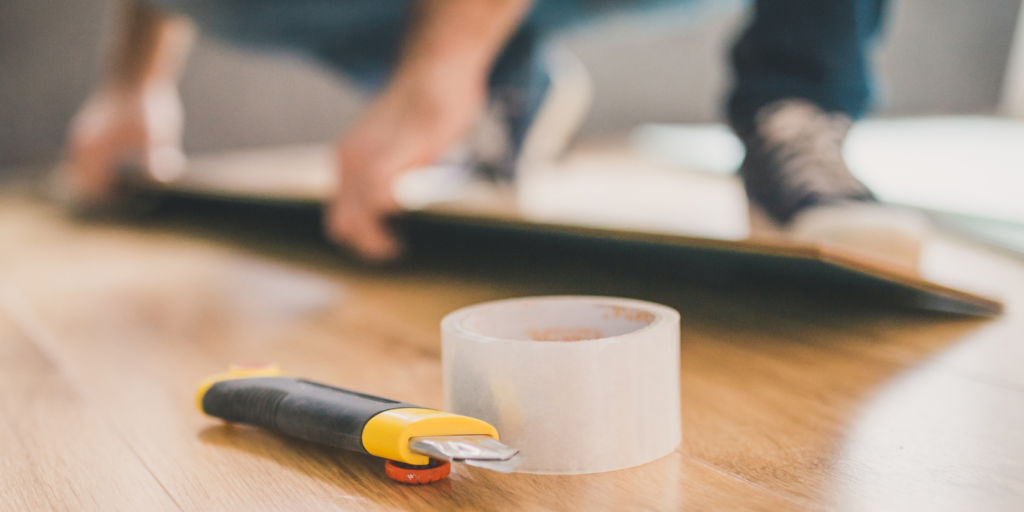Floating Floor: Are They a Good Investment?

When it comes to home flooring options, the choices seem endless. One alternative that’s gaining popularity is floating floors. But are they a good investment for your home? In this blog post, we’ll explore what floating floors are, their advantages, and considerations to help you decide if they’re the right choice for your space.
What Are Floating Floors?
Floating floors are a flooring installation method, not a specific material. They get their name because they “float” over the subfloor without being glued or nailed down. Instead, they’re attached using tongue-and-groove edges, creating a unified surface.
Tools Needed for Floating Floor Installation
When considering floating floor installation, it’s crucial to have the right tools on hand. While the process is generally more straightforward than traditional hardwood installation, having the proper tools ensures a smoother and more precise installation. Some essential tools include a measuring tape, a utility knife, a rubber mallet, spacers, and a tapping block. However, if you plan to install engineered hardwood as a floating floor, a nail gun may be necessary to secure the flooring at the edges. This tool helps ensure a secure and stable fit, especially around the room’s perimeter, allowing most of the floor to “float” over the subfloor.
Advantages of Floating Floors
Ease of Installation
One of the most significant benefits of floating floors is their ease of installation. They can be placed over existing floors, saving time and labor costs. This makes them a popular choice for DIY enthusiasts.
Versatility
Floating floors come in various materials, including laminate, engineered hardwood, vinyl, and cork. This variety means you can find a style that matches your aesthetic preferences and the needs of different rooms.
Moisture Resistance
Many floating floor materials are moisture-resistant, making them suitable for bathrooms, kitchens, and other high-moisture areas where traditional hardwood floors might be better.
Durability
Some floating floor materials are highly durable and can withstand heavy foot traffic, making them suitable for busy households.
Easy Maintenance
Cleaning and maintaining floating floors are relatively straightforward. Regular sweeping and occasional damp mopping are usually sufficient to keep them looking great.
Considerations for Floating Floors
Cost
While floating floors can be more affordable than traditional hardwood, the cost can vary significantly based on the material and quality. It’s essential to balance your budget and desired flooring type.
Sound and Feel
Some people find that floating floors can sound hollow or feel underfoot differently than traditional, directly attached hardwood floors. Consider this aspect if it’s essential to you.
Installation Skill
While floating floors are generally easier to install than traditional hardwood, they require some DIY skills. If you’re uncomfortable with DIY projects, it might be best to hire a professional installer.
Resale Value
Traditional hardwood floors often have higher resale value than floating floors. If you’re concerned about property value, weigh the pros and cons carefully.
Is a Floating Floor Right for You?
Investing in a floating floor depends on your specific needs and preferences. Here are some scenarios where floating floors might be a good choice:
You’re on a Budget
If you want the look of hardwood or another premium flooring material without the high cost, floating floors are an excellent budget-friendly option.
You’re a DIY Enthusiast
If you enjoy DIY projects and want to save on installation costs, floating floors are relatively easy to install compared to traditional hardwood.
You Need Moisture Resistance
In rooms with high humidity or the potential for spills, floating floors with moisture-resistant properties are a smart choice.
You Want Versatility
Floating floors come in various styles and materials, making them versatile for different design preferences and room types.
However, explore other flooring options if you want an investment with the highest resale value or prefer nailed-down hardwood’s traditional feel and sound.
Floating floors can be a practical and cost-effective choice for homeowners seeking an attractive, versatile flooring solution. They offer ease of installation, a variety of materials, and moisture resistance, making them suitable for various spaces. However, like any home improvement decision, weighing the advantages and considerations carefully is essential to determine if floating floors are the right investment for your home.
